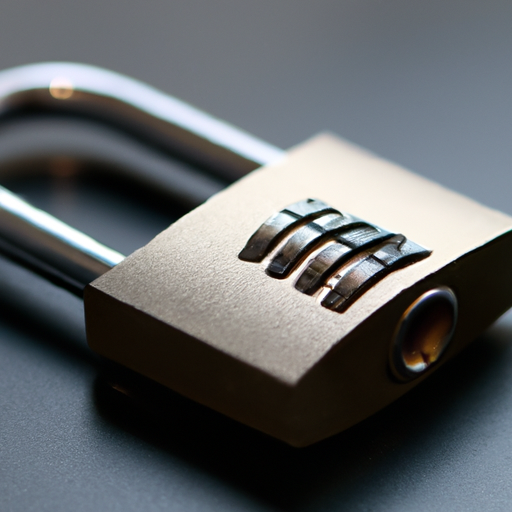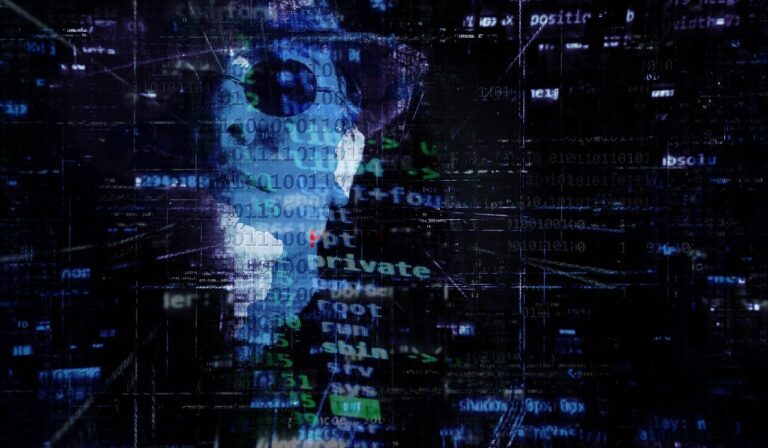How Does The CFAA (Computer Fraud And Abuse Act) Impact Cybersecurity?
Are you curious about how the CFAA (Computer Fraud and Abuse Act) affects the world of cybersecurity? This widely-debated legislation has been a topic of discussion among experts and enthusiasts alike. In this article, we will explore the implications of the CFAA on cybersecurity, shedding light on its potential impact on individuals and organizations alike. So, grab a cup of coffee and let’s delve into the fascinating world of cybersecurity and the CFAA together!
Overview of the CFAA
The Computer Fraud and Abuse Act (CFAA) is a federal law in the United States that addresses computer-related crimes and unauthorized access to computer systems. It was enacted in 1986 and has since undergone several amendments to adapt to the evolving landscape of technology and cybersecurity. The CFAA plays a crucial role in deterring and punishing cybercrimes, but it has also been the subject of controversy and debate due to its potential impact on civil liberties.
History of the CFAA
The CFAA was initially introduced as a response to the growing concerns about computer crimes in the 1980s. At that time, the use of computers for illegal activities, such as hacking and data theft, became more prevalent. The legislation aimed to provide a legal framework to prosecute individuals who engaged in unauthorized access, fraud, and other computer-related offenses. Over the years, the CFAA has been amended to address emerging cyber threats and adapt to the advancements in technology.
Purpose of the CFAA
The primary purpose of the CFAA is to protect computer systems from unauthorized access and misuse. It prohibits various activities, including unauthorized access to protected computers, exceeding authorized access, and obtaining information without authorization. The CFAA also criminalizes the trafficking of passwords, maliciously damaging computer systems, and threatening to cause damage to protected computers. By establishing legal penalties for these actions, the CFAA aims to deter cybercriminals and safeguard the integrity of computer networks.
The CFAA and Unauthorized Access
Definition of Unauthorized Access
Unauthorized access, as defined by the CFAA, refers to gaining access to a computer system or network without proper authorization. This can include using stolen credentials, exploiting vulnerabilities, or bypassing security measures to gain entry. The CFAA prohibits both physical and remote unauthorized access, treating it as a criminal offense.
Penalties for Unauthorized Access
The CFAA imposes severe penalties for unauthorized access and related offenses. Violators can face imprisonment for up to 10 years for first-time offenses and up to 20 years for subsequent offenses. In cases involving damage to computer systems or financial loss, the penalties can be even more severe. The CFAA also grants victims the right to sue the perpetrator for damages caused by their unauthorized access.
Impact on Ethical Hacking
Ethical Hacking Defined
Ethical hacking, also known as penetration testing or white-hat hacking, refers to the practice of deliberately testing the security of computer systems and networks to identify vulnerabilities. Ethical hackers are authorized individuals who seek to improve cybersecurity by proactively identifying and patching weaknesses before malicious hackers can exploit them.
Legality of Ethical Hacking under the CFAA
The legality of ethical hacking under the CFAA is a subject of debate. While the CFAA primarily focuses on unauthorized access, it could potentially be interpreted to criminalize certain activities performed by ethical hackers. By intentionally probing computer systems without explicit permission, ethical hackers may technically violate the provisions of the CFAA. However, in practice, many organizations engage ethical hackers under legally binding agreements to perform security assessments, and such arrangements usually provide the necessary authorization to conduct penetration testing without legal repercussions.
Enforcement Challenges
Difficulties in Detecting and Prosecuting Cyberattacks
The anonymous nature of cyberattacks and the global reach of the internet pose significant challenges for the enforcement of the CFAA. Identifying the perpetrators of cybercrimes can be complex, as attackers often employ sophisticated techniques to conceal their identities and location. Additionally, distinguishing between domestic and international cybercriminals further complicates the process of investigation and apprehension.
Jurisdictional Challenges
The jurisdictional challenges associated with cybercrimes make it difficult to enforce the CFAA consistently. As cybercrimes can occur across borders, coordinating international efforts to apprehend and prosecute perpetrators can be challenging. Cooperation between law enforcement agencies from different countries is necessary to address these jurisdictional obstacles and ensure effective enforcement of the CFAA on a global scale.
Controversies Surrounding the CFAA
Criticism of the CFAA
The CFAA has faced criticism from various quarters due to its broad and sometimes ambiguous language, which some argue could be interpreted to infringe on civil liberties. Critics argue that the law’s broad definitions of terms like “unauthorized access” and “exceeding authorized access” could potentially criminalize legitimate activities, such as security research or terms-of-service violations. They argue that the law’s lack of clarity and flexibility may stifle innovation and hinder cybersecurity efforts.
First Amendment Concerns
The CFAA has also been a subject of concern regarding potential violations of the First Amendment. Critics argue that criminalizing certain online activities under the CFAA could infringe on free speech rights. For example, accessing publicly available information or engaging in political activism online could potentially be viewed as CFAA violations, depending on how the law is interpreted and applied. Balancing the need to protect cybersecurity with the preservation of civil liberties remains a challenge in the ongoing debates surrounding the CFAA.
CFAA Amendments and Updates
Recent Amendments to the CFAA
In recent years, there have been efforts to update and amend the CFAA to address some of the concerns and challenges associated with its enforcement. These amendments aim to clarify the language of the law, establish clearer thresholds for criminal liability, and strike a better balance between security and civil liberties. However, achieving consensus on these issues remains a complex task, and progress on significant CFAA amendments has been limited.
Proposed Updates and Reforms
Various proposals for CFAA updates and reforms have been put forward by legislators, cybersecurity experts, and advocacy groups. These proposals seek to refine the language of the law, narrow its scope, and provide better exemptions for legitimate activities, such as security research. They also emphasize the need for increased transparency and accountability in the enforcement of the CFAA. However, the path toward implementing comprehensive updates and reforms to the legislation remains uncertain, as it requires careful consideration of competing interests and concerns.
CFAA and the Private Sector
Implications for Companies and Organizations
The CFAA has significant implications for companies and organizations, particularly in terms of protecting their digital assets. It establishes legal protections and penalties related to unauthorized access, data breaches, and other cybercrimes committed against businesses. Compliance with the CFAA is crucial for safeguarding sensitive data, maintaining customer trust, and ensuring business continuity. Organizations must invest in robust cybersecurity measures and policies to mitigate the risks associated with CFAA violations.
Liability for Employee Actions
Under the CFAA, companies can be held liable for the actions of their employees if those actions result in unauthorized access or damaging computer systems. It is essential for organizations to establish clear policies and guidelines regarding acceptable computer usage and data access to minimize the potential for employee-related CFAA violations. Regular training and awareness programs can help employees understand the legal implications of their actions and promote a culture of cybersecurity within the organization.
CFAA and Government Agencies
Impact on Government Cybersecurity
The CFAA plays a vital role in government cybersecurity efforts, as it provides a legal framework for combating cybercrime and prosecuting individuals who engage in malicious activities. Government agencies rely on the CFAA to protect critical infrastructure, sensitive information, and national security interests. By criminalizing unauthorized access and other cyber offenses, the CFAA acts as a deterrent and supports the government’s overall cybersecurity strategy.
CFAA Violations by Government Employees
While the CFAA is often associated with prosecuting cybercriminals, it is not limited to non-government actors. Government employees can also be subject to the provisions of the CFAA if they engage in unauthorized access or misuse computer systems under their control. Upholding the integrity of government networks and ensuring accountability among government personnel are essential elements of maintaining effective cybersecurity practices within government agencies.
International Perspective on the CFAA
Comparison to Similar Cybersecurity Laws in Other Countries
Other countries have developed their own laws and regulations targeting cybercrimes and unauthorized access. These laws, although similar in purpose to the CFAA, may vary in scope and jurisdiction. While some countries have enacted legislation resembling the CFAA, others have adopted different approaches to address cybersecurity challenges. International cooperation and coordination are vital for addressing cross-border cybercrimes and promoting global cybersecurity standards.
Extradition and Cross-Border Enforcement
The nature of cybercrimes often transcends national boundaries, posing difficulties in apprehending and prosecuting offenders. Extradition treaties and agreements play a crucial role in enabling the international enforcement of the CFAA. Cooperation among nations is essential to ensure that cybercriminals cannot operate with impunity across borders. Efforts to streamline cross-border enforcement mechanisms are ongoing, with the aim of enhancing international collaboration in combating cybercrimes.
Balancing Cybersecurity and Civil Liberties
CFAA’s Role in Protecting Civil Liberties
While the CFAA primarily focuses on cybersecurity, it also incorporates provisions to protect civil liberties. For example, the law includes safeguards to prevent the unjustified seizure or disclosure of information during investigations. However, striking a balance between cybersecurity and civil liberties remains an ongoing challenge. Critics argue that overly broad interpretations of the CFAA could potentially infringe on privacy rights and freedom of expression. Ensuring that the law respects individual liberties while effectively addressing cyber threats is a complex endeavor that requires continued scrutiny and debate.
Debate on the Balance between Security and Privacy
As technology evolves and cyber threats become increasingly sophisticated, the debate on the balance between security and privacy intensifies. The CFAA is at the center of this discourse, with proponents arguing that robust cybersecurity measures are necessary to protect individuals and society as a whole. Critics, on the other hand, voice concerns about potential government overreach and infringement on civil liberties. Striking the right balance between security and privacy is a societal challenge that requires ongoing dialogue, legislative reforms, and technological advancements.
In conclusion, the Computer Fraud and Abuse Act (CFAA) significantly impacts cybersecurity by criminalizing unauthorized access and other computer-related crimes. While serving as a crucial tool in deterring and prosecuting cybercriminals, the CFAA has also been the subject of controversy due to potential civil liberties concerns and enforcement challenges. Ongoing dialogue, legislative updates, and international cooperation are essential to navigate these complexities and maintain a robust cybersecurity framework that balances the need for security with the preservation of civil liberties.








